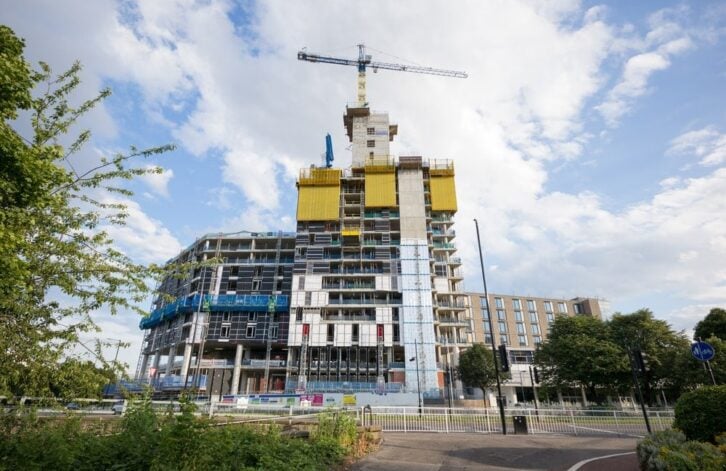Across the UK approximately 30% of full time first year undergraduates live in purpose built private rented sector or at home with parents, a new survey shows.
The majority of students are happy with their accommodation choice for the year, however levels of happiness were slightly higher for those living in private purpose built accommodation at 76% and university accommodation at 76% than students living in the private rented sector at 73%.
The key drivers of happiness in private purpose built student accommodation are location, the option to live with friends and the quality of accommodation, the largest ever UK student accommodation survey from Knight Frank and UCAS also shows.
When it comes to finding somewhere to live, the single most important factor influencing the choice students make is value for money. Some 97% of respondents rated this as being important to them, with approximately half rating it as extremely important.
Just over two thirds, some 67% of students rated their accommodation as good value for money with a further 12% saying it was neither good nor poor value. Value for money was comparable regardless of whether students were living in private purpose built accommodation, University accommodation or in the private rented sector.
The research also found that parental involvement also has a role to play when it comes to finding somewhere to live, especially for first year students, with 76% saying that their parents were involved when they were deciding where to live.
This was much lower for second year and third year students, with 45% saying that their parents had no involvement at all.
The survey also points to affordability being an issue influencing student wellbeing. Some 63% of students identified living costs as being very important when it came to their overall wellbeing.
Some 41% of final year students intend to remain in the city in which they studied. Graduate retention is highest in London at 67%, followed by Edinburgh at 47%, Manchester at 46% and Birmingham at 41%.
Thinking about where they intend to live following graduation, more than half of students said they would move directly into a property in the private rented sector, with a further 31% saying they would move back to the family home after graduating.
Since the lifting of the student number cap in 2015, universities have prioritised investment in improving teaching, facilities and the wider student experience. The findings of Knight Frank and UCAS’ survey clearly show that accommodation also has a role to play.
‘The focus on student accommodation has never been so acute and with several universities facing financial challenges, as well as the potential impacts of the Augar Review on tuition fees, universities must ensure that they get their accommodation offering right,’ said James Pullan, global head of student property at Knight Frank.
‘Our survey comes at a time when the private purpose built student accommodation (PBSA) sector in the UK faces its own set of challenges; not least from policy and from competition in what has become an increasingly global market for higher education,’ he explained.
‘The private sector now accounts for the majority of new PBSA development, and, as universities become more reliant on outside investment to provide new PBSA, greater focus is likely to be placed on the strength of the relationship between the private sector and universities. The ability for both to work together and bring new product and innovation to market will be key to future success,’ he added.






